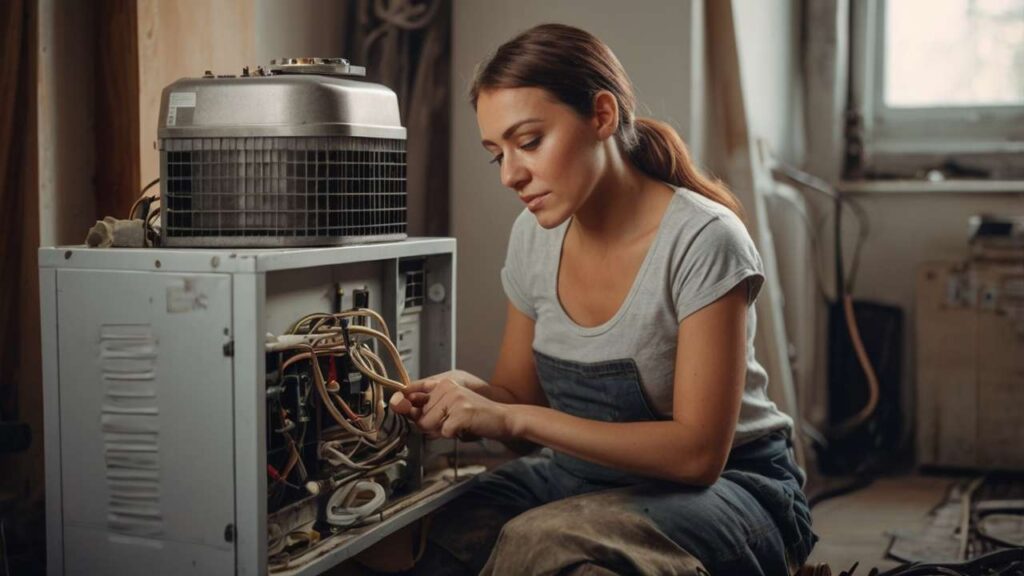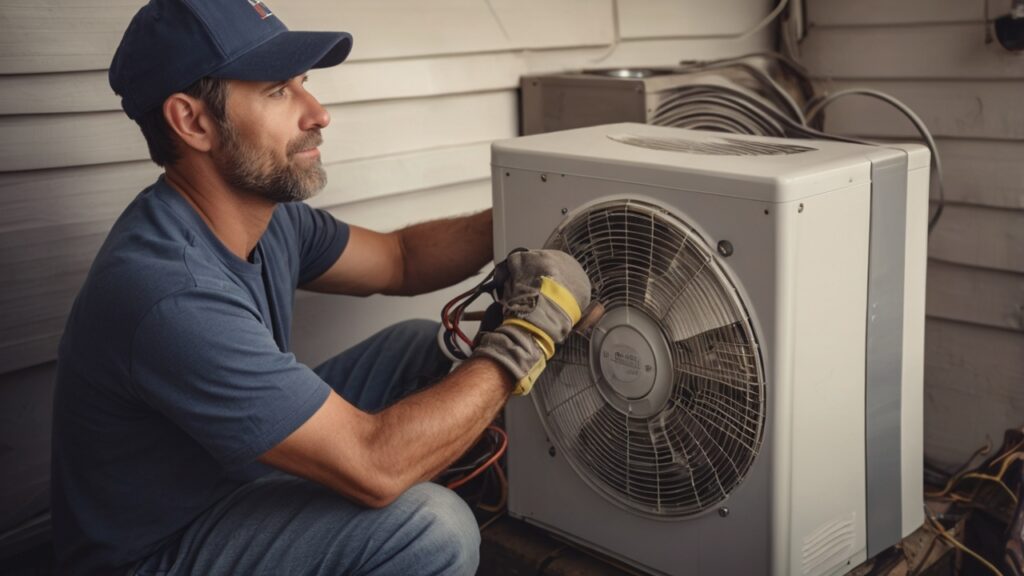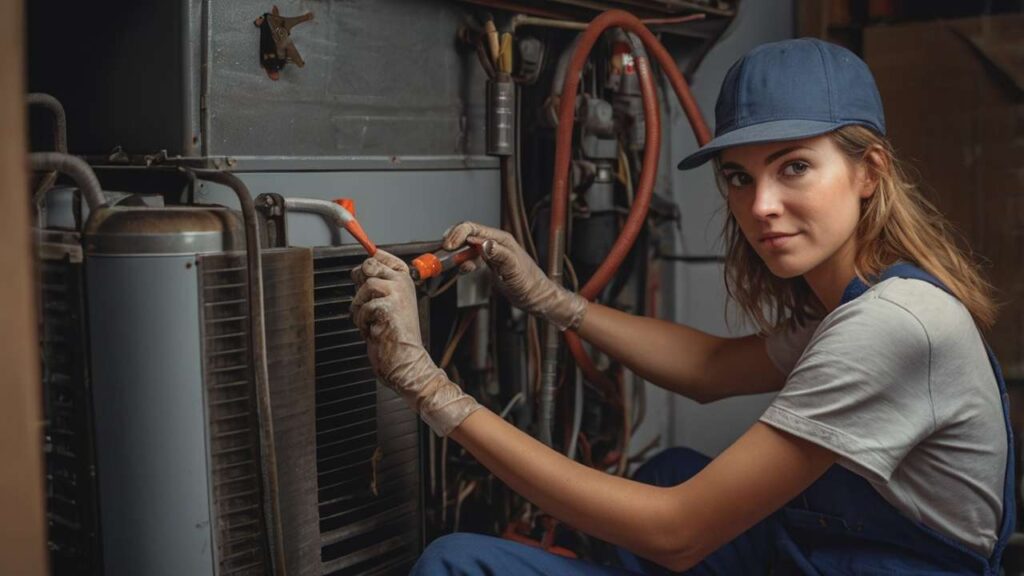Choosing an HVAC system isn’t just about keeping cool in the summer or warm in the winter. It’s about energy bills, your comfort, the environment, and honestly, your sanity when that one noisy unit keeps kicking on and off at 2 a.m. The efficiency question is one that almost every homeowner eventually faces: what SEER rating should I buy? or is a sustainable heating system really worth it? These are not small questions because they affect your wallet long-term.
In fact, HVAC energy efficiency is being talked about everywhere — neighbors comparing electric bills, professionals pushing high-efficiency heating and cooling, and homeowners Googling things like “energy-efficient HVAC” at midnight. The truth is, the system you choose can either be the best long-term investment you ever made or a constant headache with hidden costs.
A lot of homeowners regret rushing their decision, and I don’t want you to end up in that boat. I’ve seen systems that were advertised as “the latest high-tech deal” but ended up costing double in repairs because the wrong unit was installed for the wrong type of house. Efficiency matters — but only if it’s matched with what you actually need.
Understanding HVAC Energy Efficiency (Without Overcomplicating It)
Let’s clear something up: efficiency isn’t just about saving the planet, though that’s a nice bonus. Efficiency is about how much heating or cooling you’re getting compared to how much electricity the system is eating.
Here’s a simple way to think of it. Imagine pouring a full glass of soda into two cups. One cup keeps most of it inside, while the other spills half of it out. The first one? That’s an energy-efficient HVAC system. The second one? That’s your old clunky unit burning money.
So, when you see terms like SEER rating explained (Seasonal Energy Efficiency Ratio), it basically measures how good your system is at that soda-pouring trick. The higher the SEER, the more efficient.
- A SEER rating of 14 is the basic entry point today.
- A SEER rating of 16–18 is considered good and cost-effective for most homes.
- A SEER rating of 20+? That’s premium, often found in systems like variable-speed HVAC or mini-split systems.
But don’t just run out and buy the highest number you can find. As Mark Jensen, a trusted HVAC professional with 20+ years in the field, says:
“Homeowners often waste thousands buying a 21 SEER system for a house that only needed a 16 SEER. Efficiency is not a one-size-fits-all decision.”
Sustainable Heating Systems: Do They Actually Save Money?
Yes, sustainable heating systems like geothermal heating and cooling or mini-splits can save you money. But here’s the kicker: they don’t always save right away.
A geothermal system, for example, is incredibly efficient. It uses the earth’s natural temperature to heat and cool your home. The downside? The installation cost can be jaw-dropping upfront. You’re talking $15,000–$30,000 depending on your home. Still, I once worked with a couple in Raleigh who swallowed that cost, and now their monthly heating/cooling bill averages under $50. Over time, they’ll actually save thousands compared to their neighbor’s “budget” HVAC system that needs constant repairs.
Mini-split systems are another great sustainable option, especially if you don’t want ductwork. They’re flexible, energy-efficient, and perfect for families who don’t all agree on the same temperature. (Yes, I’m talking about you, households where the kid upstairs is freezing while dad downstairs is sweating.)
What SEER Rating Should I Buy? A Straightforward Answer
If you skipped to this part, I get it. Here’s the honest truth:
- If you’re in a moderate climate and not home all day, a 14–16 SEER is fine.
- If you run your system constantly or live in a hot/humid climate, aim for 16–18 SEER.
- If you’re planning to live in your home long-term, and you’re okay paying more upfront, then yes — a 20+ SEER high-efficiency heating and cooling system could be worth it.
Don’t let salespeople push you into a higher SEER just because it “sounds” better. Think about your actual living patterns.
Common Problems Homeowners Face with HVAC Efficiency
Let me get real with you here: even the best systems fail if installed poorly or maintained badly. I’ve seen brand-new units breaking down because the wrong duct size was used. And I’ve seen homeowners skip preventive maintenance and then act shocked when the compressor died early.
Some common issues:
- Leaking ducts – Wastes energy, like running the AC with your windows open.
- Wrong thermostat settings – Yes, something that simple can ruin efficiency.
- Old refrigerant leaks – Especially in older units.
- Oversized/undersized units – Bigger isn’t always better. Too large, and it cycles on/off constantly. Too small, and it never keeps up.
This is where reliable and expert preventive maintenance saves you. Check out The Ultimate Guide to HVAC Preventive Maintenance for a step-by-step on keeping systems healthy.
The Hidden Costs of Ignoring Efficiency
I know a neighbor who thought she was saving money by ignoring her noisy old system. Guess what? A year later, her unit completely died in the middle of summer. Emergency replacement, rush fees, and living in a rental for a week while repairs were made — it cost her double what it should have.
Efficiency isn’t just about “being green.” It’s about avoiding negative situations like surprise failures. Reliable systems give peace of mind. And peace of mind has a value no one puts in the brochure.
Beyond Efficiency: Other HVAC Topics Worth Knowing
For anyone deep into learning about HVAC, don’t stop here. There are other crucial guides on ProServiceTips.com that connect to this topic:
- HVAC Companies Recommendations in North Carolina
- Breathing Easier: Improving Indoor Air Quality with Your HVAC System
- The Efficiency Question: How to Choose the Right HVAC System for Your Home
- Beyond the AC: The Overlooked Role of Attic Fans in Home Comfort
- Don’t Delay: Why Ignoring Small HVAC Issues Costs You More in the Long Run
For future development, here are potential deep-dive ideas (not just a list, but how they’d help readers):
- Smart HVAC Technology Integration – Exploring how smart thermostats, AI-driven sensors, and connected home devices are transforming energy efficiency in everyday homes. Not just tech talk, but how real families can lower bills without sacrificing comfort.
- The Psychology of Comfort – Sounds strange, but people feel comfortable at different temperatures depending on humidity, airflow, and even the color of the walls. Articles like this can explain why two households with identical systems feel totally different.
- DIY vs. Professional HVAC Repairs – A detailed breakdown of what small fixes homeowners can safely attempt (like changing filters, checking thermostats) and what absolutely needs a trusted professional to avoid dangerous mistakes.
- The Financial Side of HVAC – How to calculate payback periods for energy-efficient systems and whether tax credits, rebates, and financing options really make it worth it.
- Seasonal HVAC Myths Debunked – From “closing vents saves energy” to “bigger systems cool faster,” busting common myths in a practical, slightly humorous way.
These expansions help build a full library where readers don’t just learn about systems — they learn how to live better with them.
FAQs
1. What SEER rating should I buy for my home?
Most homeowners do well with a 16–18 SEER system. Higher is better for long-term stays, but don’t overspend on a rating your house won’t benefit from.
2. Are sustainable heating systems like geothermal worth the cost?
Yes, in the long run. They save significantly on monthly bills, but upfront costs are higher. Think long-term investment, not quick win.
3. How do I make my current HVAC system more energy-efficient?
Simple steps like sealing ducts, upgrading thermostats, and regular preventive maintenance can increase efficiency even if you don’t buy a new system.
Final Thoughts
Efficiency is more than numbers on a brochure. It’s about matching the right system with your real lifestyle. Whether you’re curious about variable-speed HVAC, considering mini-split systems, or exploring geothermal heating and cooling, the smartest step is not rushing. Get professional advice from trusted HVAC experts, and remember — the best system is the one that keeps you comfortable without silently draining your wallet.
If you found this helpful, don’t keep it to yourself — hit the share buttons below and help your friends make smarter HVAC decisions too.



